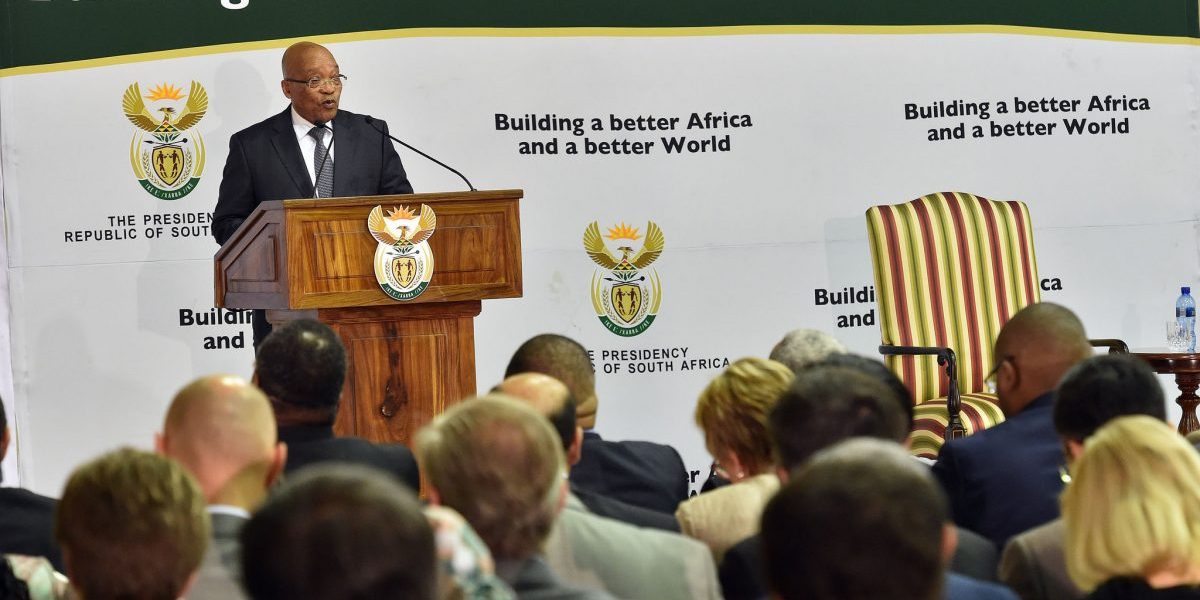It is, after all, a great vote-catching line. Ebrahim Rasool, premier of South Africa’s Western Cape province, used it last year when launching the Red Door initiative, a $18 million training programme aimed at enabling emerging entrepreneurs to break into the micro-enterprise sector. Lynn Brown, Western Cape Minister of Finance, Economic Affairs and Tourism, paints a picture of a one-stop shop for micro-businesses, ‘with all the help they need’. She has set a three-year rollout target to open another 26 Red Door offices, adding to the nine currently operating. It would hopefully produce 20,000 ‘micro survivalist businesspeople’ with 60,000 employees between them.
But that claim, say Red Door staff, is little more than political puffery. Like many state and aid-driven projects to help the poor, the political need to claim success has led politicians to commit funding before determining if the project is working. In June, delegates to the African Economic Summit (AES) 2005 in Cape Town were escorted to Red Door’s signature office in Khayelitsha, a township 30 minutes from the city.
At AES, politicians talked of speeding up, expanding the service and focusing on aggressive outreach programmes, staff on the ground talked of slowing down. Bonita Daniels, a Red Door manager, conceded that references to training were exaggerated. The training programme then consisted of only three modules. Although 4,484 people had visited Red Door in its first year, they were only given a rudimentary course, lasting a few hours, on basic business knowledge, planning and advice on applying for state and provincial tenders. There is no follow through.
Red Door managers, who prefer not to be quoted, have pressured the Western Cape government to radically slash the numbers, and bring in a genuine mentorship programme. Each trainee, if their suggestion goes through, would be assigned a ‘navigator’, who will take the delegate on each step of the journey, from a broadened training programme, through to actually winning a tender. They will also assist the would-be entrepreneurs in sourcing funds from the Department of Trade and Industry.
‘Too many job-creation interventions fall into the trap of measuring themselves against input, because that is the easy part. It’s not how many people come through the door looking for help, it’s how many actually get work because of the process,’ said Danny Meyer, who assists small businesses in Namibia.
As MD of SMEs Compete – a donor-funded initiative to help Namibian small- and medium-sized companies – he has seen many entrepreneur-creation initiatives fail. The problem, according to Meyer, is that while Red Door sounds good from a lofty political level, it has failed to identify what assistance would make a major difference in the lives of entrepreneurs. Red Door offers basic courses of a few hours to visitors, but can’t say how the information conveyed will make a difference.
One of the problems, said Meyer, is the people doing the actual consulting. ‘Despite the evident enthusiasm from the ones we met, it seems from talking to them that none of them have run their own businesses. They might have the theoretical knowledge, and apparently many have worked for financial institutions, but they have never been at the coalface.’
Gisele Yitamben, the founder of Asafe, a programme aimed at empowering women entrepreneurs in Cameroon, shares the concerns. ‘The whole thing is too superficial. I see the main focus on getting numbers through the door, which is in itself meaningless. Interviewing people, and perhaps even facilitating loans, is not job creation.’
Asafe has been running for 17 years, and in 2004 worked with over 20,000 women. ‘When we started we had the same problems that I think the Red Door will have. We tried to do too much too quickly. Our turning point came when we pulled back, identified a few people that had potential, and then took them through a process that culminated in actual work. It is a two- to three-year learning experience.’
However there are a few success stories, said Daniels. One is Sizisa Ukukhanya Services. Owner Bongani Ndinisa says that Red Door remodelled his business plan and used it to facilitate funding for a painting contract that his company had won, but did not have the working capital to complete. Based on the success he set up Koncoshe Capital, a micro-loans company that lends money to other start-up businesses that cannot obtain funds through the formal channels.
‘Koncoshe’s success is great, but I question where the job creation aspect comes in?’ said Meyer. ‘All I see is a middleman between the banks and entrepreneurs who is adding to the cost of obtaining money.’
Says one of Red Door manager: ‘The common expectation is that once we listen to their stories we will facilitate loans. It’s not our business. But in reality what can we possibly teach people that have been in a micro-business that cannot possibly employ more than one person?’







